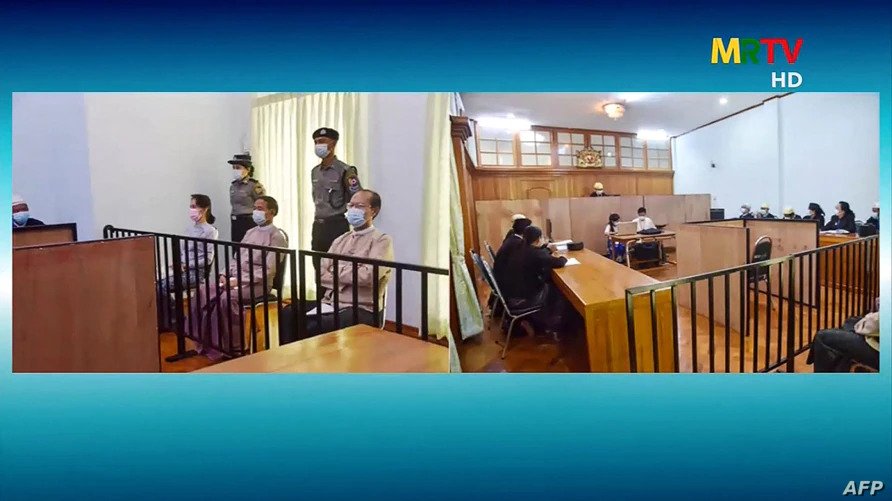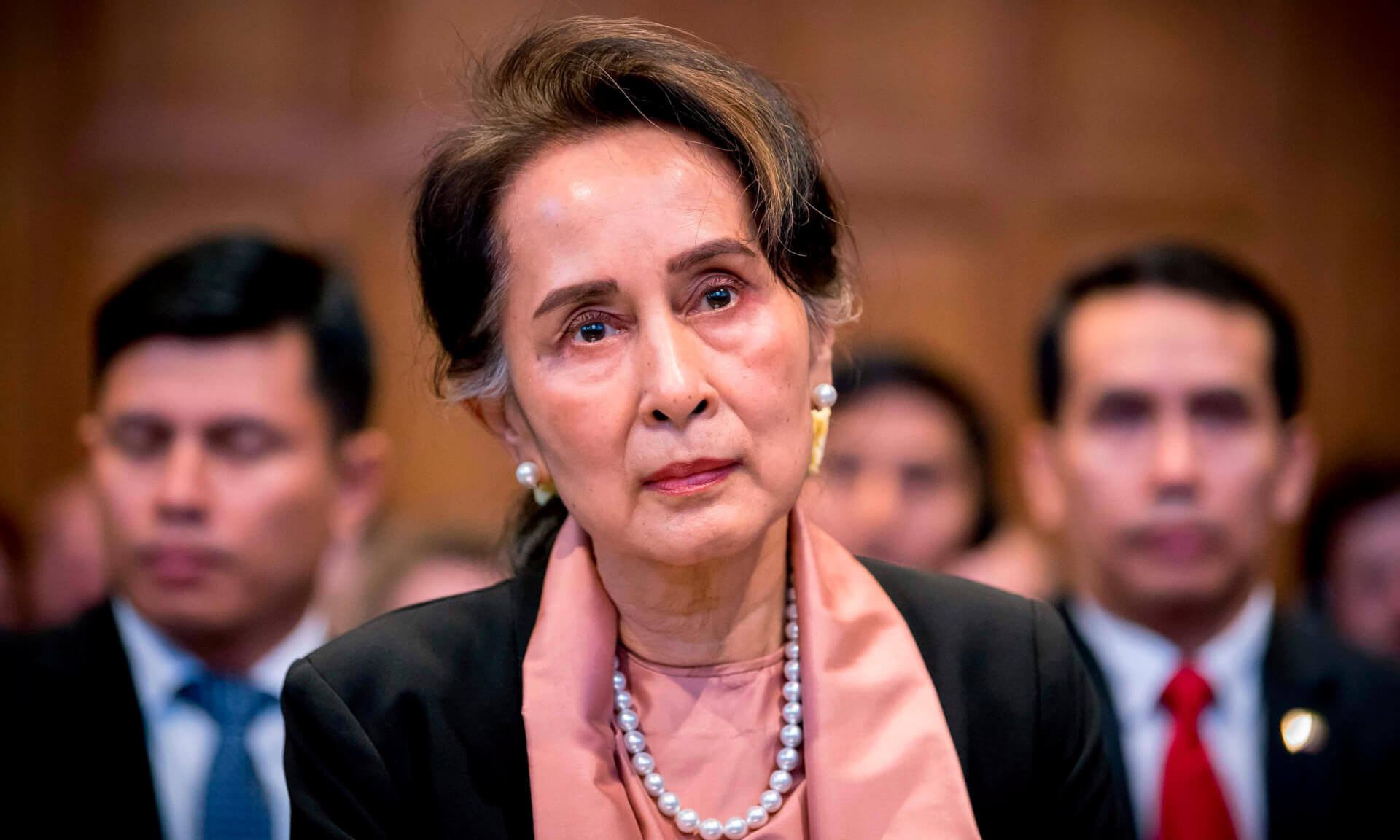Myanmar’s ousted leader Aung San Suu Kyi made her first in-person court appearance in Naypyitaw on Monday since her arrest in February, when the military overthrew the democratically elected government and forcibly took power. State television MRTV aired pictures of her in the evening, which showed Suu Kyi, 75, sitting upright with a facemask and her hands folded in her lap. Seated next to her were fellow National League for Democracy (NLD) members and co-defendants former President Win Myint and former Naypyitaw mayor Myo Aung.

Suu Kyi’s lawyer Min Min Soe told AFP: “We met with Amay Suu for 30 minutes...There wasn’t much time to talk within 30 minutes, but she sounded healthy and fully confident.” He also said that the Nobel laureate—who has been under house arrest since the coup—“wishes her people to stay healthy as well as affirmed the NLD will exist as long as people exist because it was founded for people.” In addition, the lawyer stated that Suu Kyi’s next hearing was set for June 7.
The former leader of Myanmar has been battling numerous superficial charges that were pinned on her in an effort to curb opposition in the aftermath of the putsch. In February, Suu Kyi’s lawyer, Khin Maung Zaw, announced that the former State Counsellor had been charged with “an extra [violation] … under the Natural Disaster Management law.” Although additional details on the charge and how it applies to Suu Kyi are not clear, it has reportedly been previously used to prosecute people who have violated the country’s coronavirus restrictions. Further, it also carries a maximum punishment of three years in prison.
Suu Kyi is also being accused of violating the country’s Import and Export Law due to her possession of “illegally” imported walkie-talkies that were not registered. It is being speculated that these charges may allow the military to detain the leader indefinitely and without a trial, especially since changes to the country’s Penal Code were made by the junta only last week. According to the Associated Press, the new amendments allow for suspects to be detained for an unlimited period of time without being formally charged by the court in certain cases.
Party members of the soon to be dissolved NLD and Suu Kyi’s legal team have been unable to contact the leader since she was detained at her residence in Naypyitaw by the military and as a result, her legal case has suffered weeks of delay.
Last November, in Myanmar’s second parliamentary election since the end of oppressive military rule in 2011, the NLD won in a landslide victory, securing 83% of the contested seats. Simultaneously, the Tatmadaw’s proxy political party, the Union Solidarity and Development Party (USDP), failed to gain traction with the public, winning an abysmal 7% of total available seats. Seeing the overwhelming support for the NLD, the military baselessly alleged that widespread voter fraud and sought to reinforce its dominance via a coup on February 1. Since then, nearly 800 civilians have been killed, and over 4,000 arrested for demanding the country’s return to democracy and the release of their former democratic leaders.

